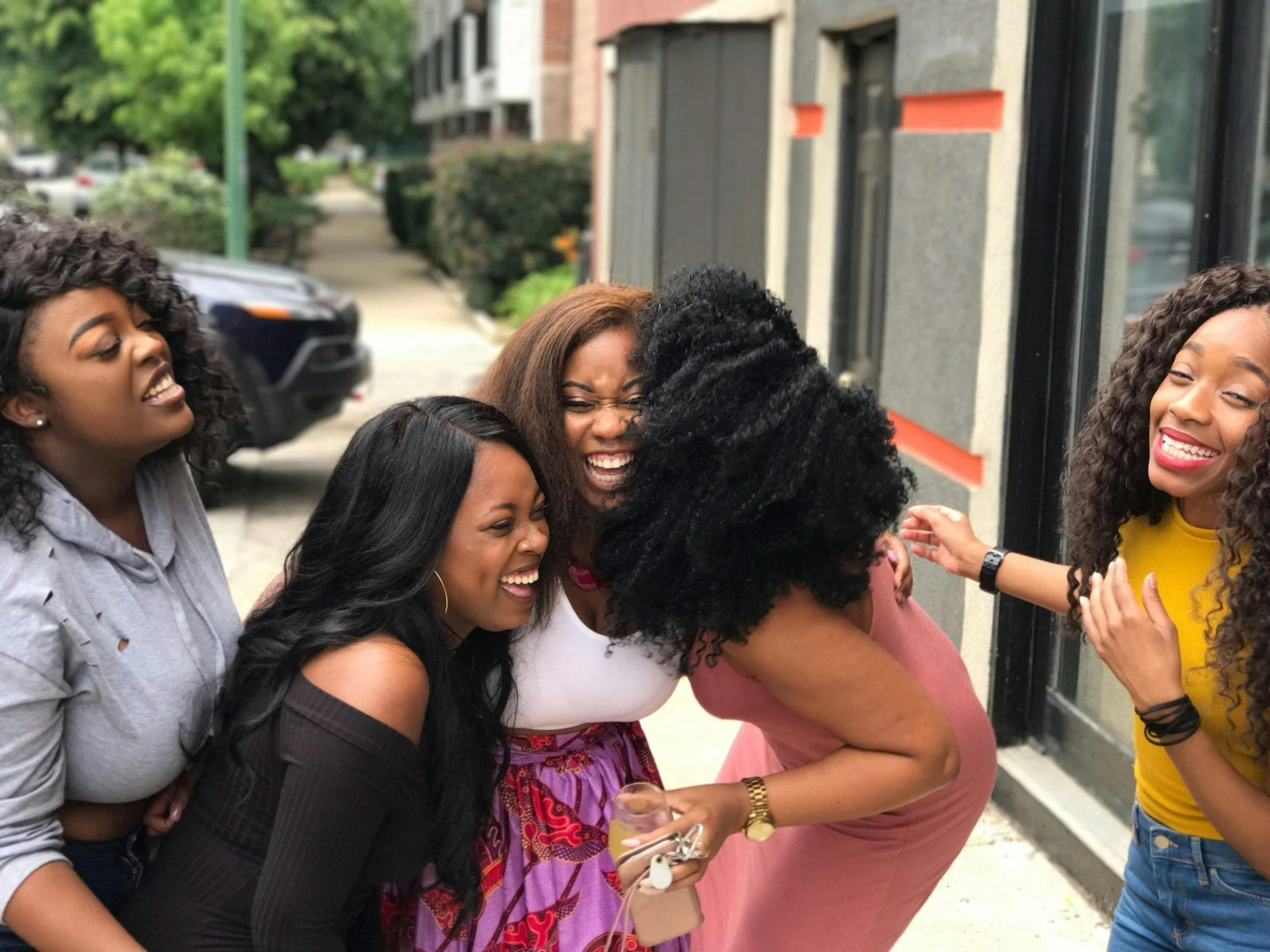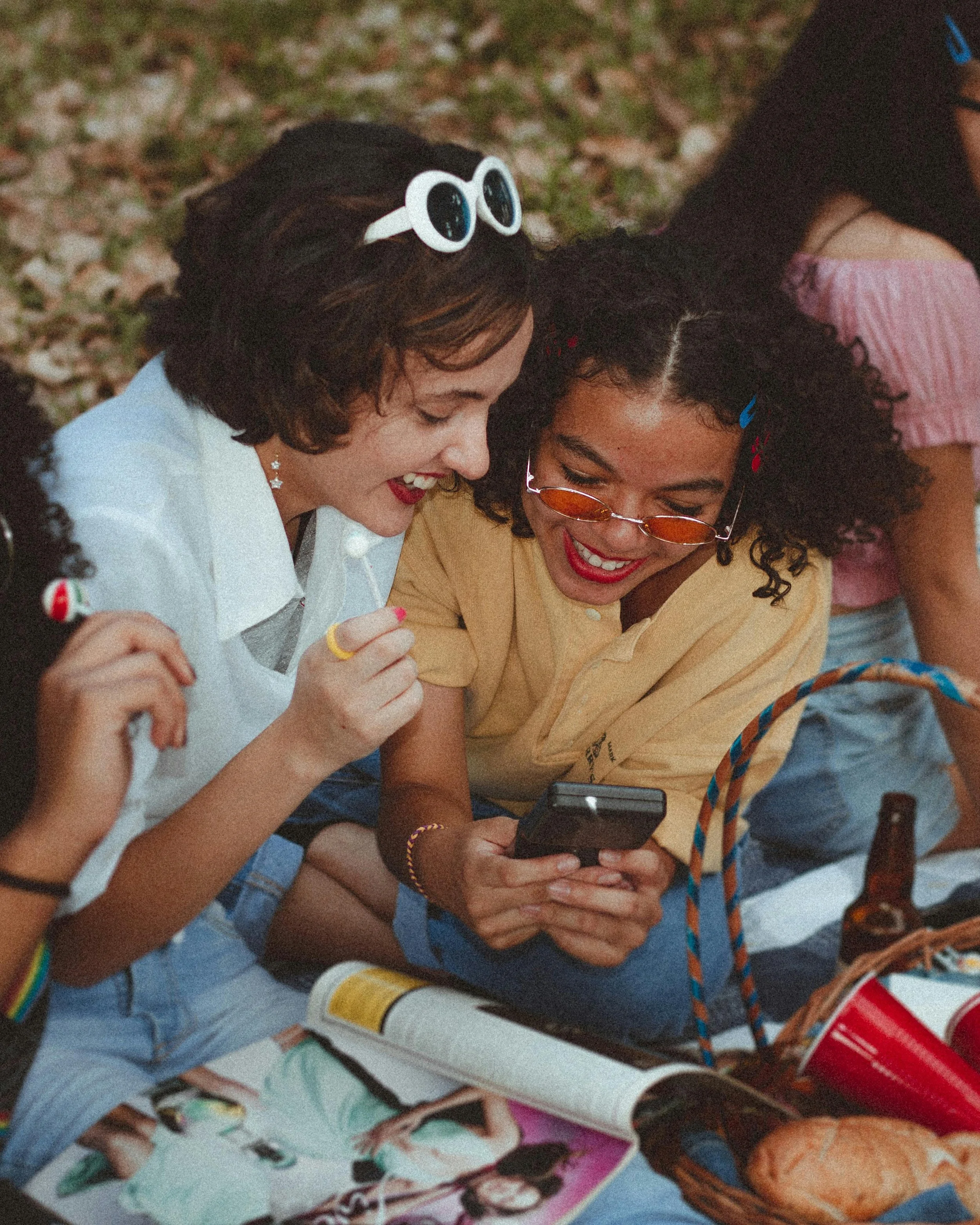7 Steps To Building New Friendships As An Adult
Not everyone has a wide circle of friends, and that’s okay. Evidence suggests a few ride-or-die friends is better than a wide network of low-intimacy friendships. Our relationships contribute a lot to our holistic wellness. Having good social support is a predictor of recovering well from surgery, chemotherapy, and other big medical events better. So it's not a small thing to have good people around. But what happens when we move or go through a big social change?
Making new friends as an adult can be daunting, but it’s possible with the right approach and mindset. Building new friendships takes effort, openness, and patience. Here are practical steps to help you form meaningful connections.
1. Reconnect With Friends You've Lost Touch With
Sometimes the best friendships are the ones that just require a little TLC. People often don't reach out to old friends they've lost touch with out of feelings of guilt or shame, or worry it would be unwelcome. But unless you've been explicitly or tacitly told it's unwanted, chances are the other person would be open to reconnecting. Friends from college and even before are often great candidates for this.
Why It Matters:
Sometimes, potential friendships are already within your reach but need nurturing.
How to Do It:
Reach Out: Contact old friends, colleagues, or acquaintances you’ve lost touch with. Reconnecting with people you already know can rekindle old friendships.
Move Interactions Off Social Media: There's only so much depth you can create through social media. A phone call will be worth 1000 social media interactions. Even a text is preferable.
2. "Repot" An Existing Relationship
In a recent New York Times editorial "The Five Day Friendship Challenge,” author Catherine Pearson talks about the power of "repotting" a friendship. This means to take a friend you usually only see at work or the gym and expand your contact with them. For example, if you're in a fitness boot camp, invite another member you like to breakfast afterwards.
Why It Matters:
People already in our circles of contact often have common interests, lifestyles, and problems. This is rich fodder for friendship.
How To Repot A Friendship
Identify a person at work or another group you'd like to deepen your connection with
Invite them to do something in another context
Listen and get to know them outside of the original setting
3. Get Involved in Activities and Groups
Sometimes, in order to "repot" a friendship, we need to find the plant nursery. This metaphor may be getting ahead of itself, but the point is you can't repot a friendship if the friendship doesn't yet exist.
Why It Matters:
Engaging in activities and groups that interest you is a natural way to meet people with similar interests.
How to Do It:
Join Clubs or Groups: Look for local clubs, hobby groups, or sports teams that match your interests. Whether it’s a book club, a hiking group, or a cooking class, shared activities provide common ground for building friendships.
Volunteer: Volunteering for a cause you care about not only helps the community but also introduces you to like-minded people. Shared values are a great foundation for friendship.
Attend Events: Participate in community events, workshops, or social gatherings. Websites like Meetup can help you find local events.
4. Be Open and Approachable
Why It Matters:
Being open and approachable encourages others to engage with you and makes forming connections easier.
How to Do It:
Smile and Make Eye Contact: A friendly demeanor makes you more approachable. Simple gestures like smiling and maintaining eye contact show that you’re open to conversation.
Start Conversations: Take the initiative to start conversations. Ask open-ended questions about the person’s interests or the activity you’re both involved in.
Be Genuine: Authenticity attracts genuine connections. Be yourself and let your true personality shine through.
5. Use Technology to Connect
Why It Matters:
Technology can bridge the gap and help you meet new people, even beyond your local area. There are even friendship apps similar to dating apps. As you're participating or scrolling, look for people with common interests, values, and lifestyles.
How to Do It:
Online Communities: Join online forums or communities related to your hobbies or interests. Engaging in discussions can lead to meaningful connections.
Friendship Apps: Consider using apps designed for making friends, such as Bumble BFF or Meetup. These platforms are specifically geared towards helping people connect.
Deepen The Friendship: Gradually over time, introduce more personal and vulnerable topics. Don't trauma dump and share all the your deep dark secrets all at once. That jeopardizes emotional safety and the balance of the friendship.
6. Be Patient And Consistent
Deep friendships are built over years, not days. We know this is tough to hear. Given the current loneliness epidemic, most people are hungry for connection. But the reality is that friendships are built through small and medium efforts over time.
7. Cultivate Your New Friendships
Why It Matters:
Building a friendship requires ongoing effort and nurturing over LONG periods of time. When we're lonely, it's normal to want a quick friendship fix. But it takes hundreds of deposits in the friendship account to build wealth. There isn't a way to dramatically speed it up.
How to Do It:
Stay in Touch: Make an effort to regularly communicate with new friends. Text, call, or meet up to maintain the connection. If you need a reminder to do this, put it on your list! Things that are important to you should be on whatever task or priority system you already use.
Plan Activities: Invite your new friends to join you in activities you enjoy. Shared experiences help strengthen bonds.
Show Appreciation: Let your new friends know you value their friendship. Small gestures of appreciation go a long way.
Common Questions About Making New Friends
Q: How can I overcome the fear of rejection?
A: Understand that not everyone will be a perfect match, and that’s okay. In fact, you don't want to be friends with people who don't like you for who you are. Focus on being yourself and seeking out those who appreciate you for who you are.
Q: Is there something wrong with me that makes it hard for me to make friends?
A: Many, many wonderful people struggle to make friends. Friendship is a combination of luck and skill. Sometimes we easily meet great people. Sometimes we aren’t among like-minded people and find maintaining relationships hard. This isn’t a reflection of you. If you’d like specific skills for making and keeping friends, therapy can help.
Q: What if I’m an introvert and find socializing exhausting?
A: You'll probably do better with 1-on-1 friendships. The great news about that is that it's easier to get closer through 1-on-1 chats than in groups. Start with small steps and gradually increase your social interactions. You can still take plenty of alone time after. Introverts can still have deep, meaningful friendships.
Q: How can I keep the conversation going with new people?
A: Ask open-ended questions, listen actively, and share something about yourself. Showing genuine interest in others encourages them to open up.
Q: What if my new friendships don’t work out?
A: It's so disappointing, but it's likely not your fault. Not all attempts at friendship will be successful, and that’s normal. Keep trying and remain open to new connections.
Q: How can therapy help me in making new friends?
A: Therapy can help you understand and overcome any social anxieties or barriers you might have. It can also provide strategies for improving your social skills and confidence.
Invest in Your Social Well-Being
We understand the importance of meaningful connections. Whether you're looking to make new friends or deepen existing relationships, our therapy services can help you develop the skills and confidence needed to build fulfilling connections. Our therapists offer individual and couples therapy to support you building stronger relationships.
Ready to take the next step? Schedule a free consultation today and discover how our teletherapy services in California and Florida can help you achieve greater happiness in your social life.






















